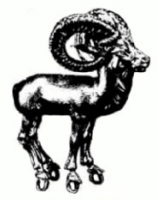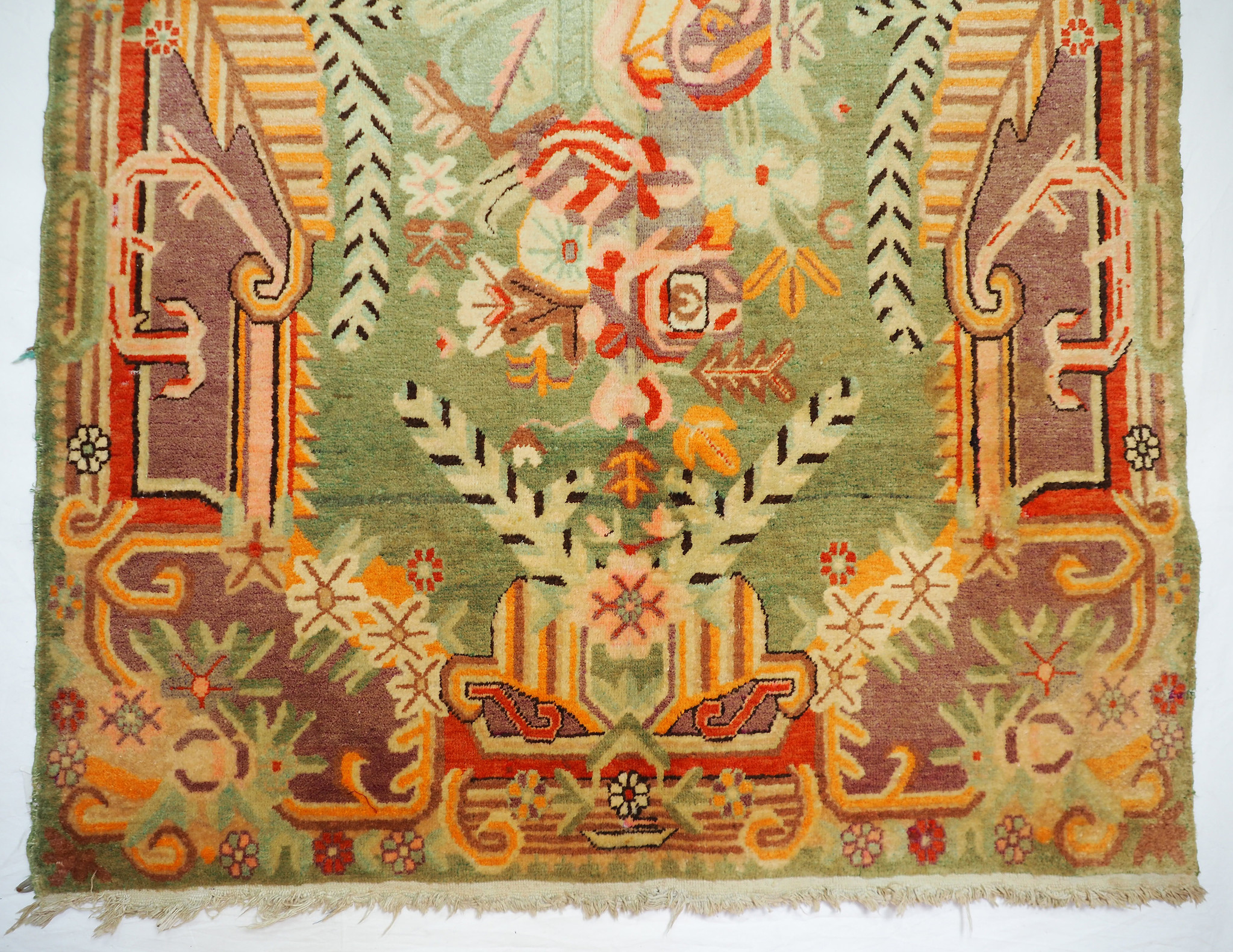- LIEFERUNG AM NÄCHSTEN TAG
- versandkostenfrei innerhalb des deutschen Festlands
- KOSTENLOSE RÜCKSENDUNG
- 30 Tage Rückgabe
250x143 cm antique Khotan rug Chinese Turkestan No:20/B
€1.950,00 *
* Inkl. MwSt. zzgl. Versandkosten zzgl. Versandkosten
Zum Heranzoomen mit der Maus über das Bild fahren
versandkostenfrei innerhalb des deutschen Festlands.
| Verfügbarkeit: | Auf Lager |
| Lieferzeit: | 1 bis 3 Werktage |
Semi-antique Khotan rug Chinese Turkestan ca.1920-30 hand knotted
Khotan rug, floor covering handwoven in or about the ancient city of Khotan (Hotan) in the southern Uygur Autonomous Region of Xinjiang (Chinese Turkistan). Khotan rugs were once called Samarkand rugs after the Central Asian trading centre. They combine Chinese details with Central Asian design schemes and Western vivid colouring, except where recent fugitive dyes have reduced their effect to washed-out pastels. The technique of Khotan rugs, s has been influenced to some degree by the earlier carpets of Persia, but the decoration generally consists of lattice designs bearing clusters of rosettes. Similar designs have been used for woolen carpets, together with triple-medallion schemes in blue on red, pomegranate vines that grow from little vases, or perhaps coffered patterns showing chrysanthemum heads locked into squares. The borders may have Chinese wave and fret patterns or flowering vines.
Khotan rugs with woolen pile have cotton warp and mixed-colour wool or cotton weft and are usually made with the asymmetrical knot. Field colours may be blue, yellow, or white, as well as the usual red.
Khotan rugs with woolen pile have cotton warp and mixed-colour wool or cotton weft and are usually made with the asymmetrical knot. Field colours may be blue, yellow, or white, as well as the usual red.
Information
Dimensions: 250x143 cm (8,2 x 4,7 ft)
Dimensions: 250x143 cm (8,2 x 4,7 ft)
Color: Vegetable dyes
Material : Natural wool
Place of origin: Xinjiang (Chinese Turkistan)
Style : Hand-woven
Condition : very good
*Due to photography and handwork, color variations may occur.
Buyer will receive exact item pictured! Please look at the images carefully before purchasing!
*** Actual item may differ slightly than the image due to image quality, lightening, Contrasts, resolutions and other factors. However, in most cases actual items look better than the images.
If you have further questions about this article, we are at your disposal! We will send you more pictures if needed upon reques.
Place of origin: Xinjiang (Chinese Turkistan)
Style : Hand-woven
Condition : very good
*Due to photography and handwork, color variations may occur.
Buyer will receive exact item pictured! Please look at the images carefully before purchasing!
*** Actual item may differ slightly than the image due to image quality, lightening, Contrasts, resolutions and other factors. However, in most cases actual items look better than the images.
If you have further questions about this article, we are at your disposal! We will send you more pictures if needed upon reques.





















